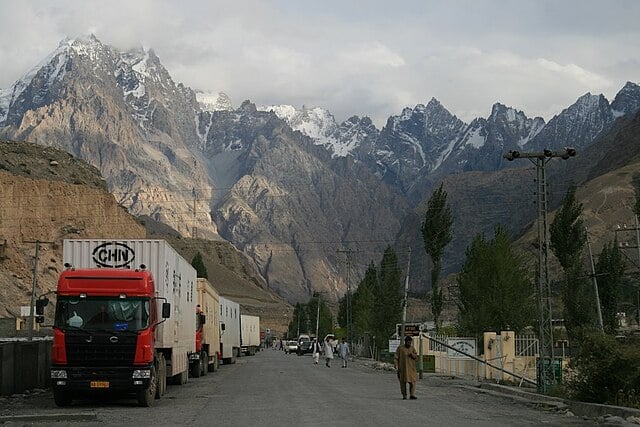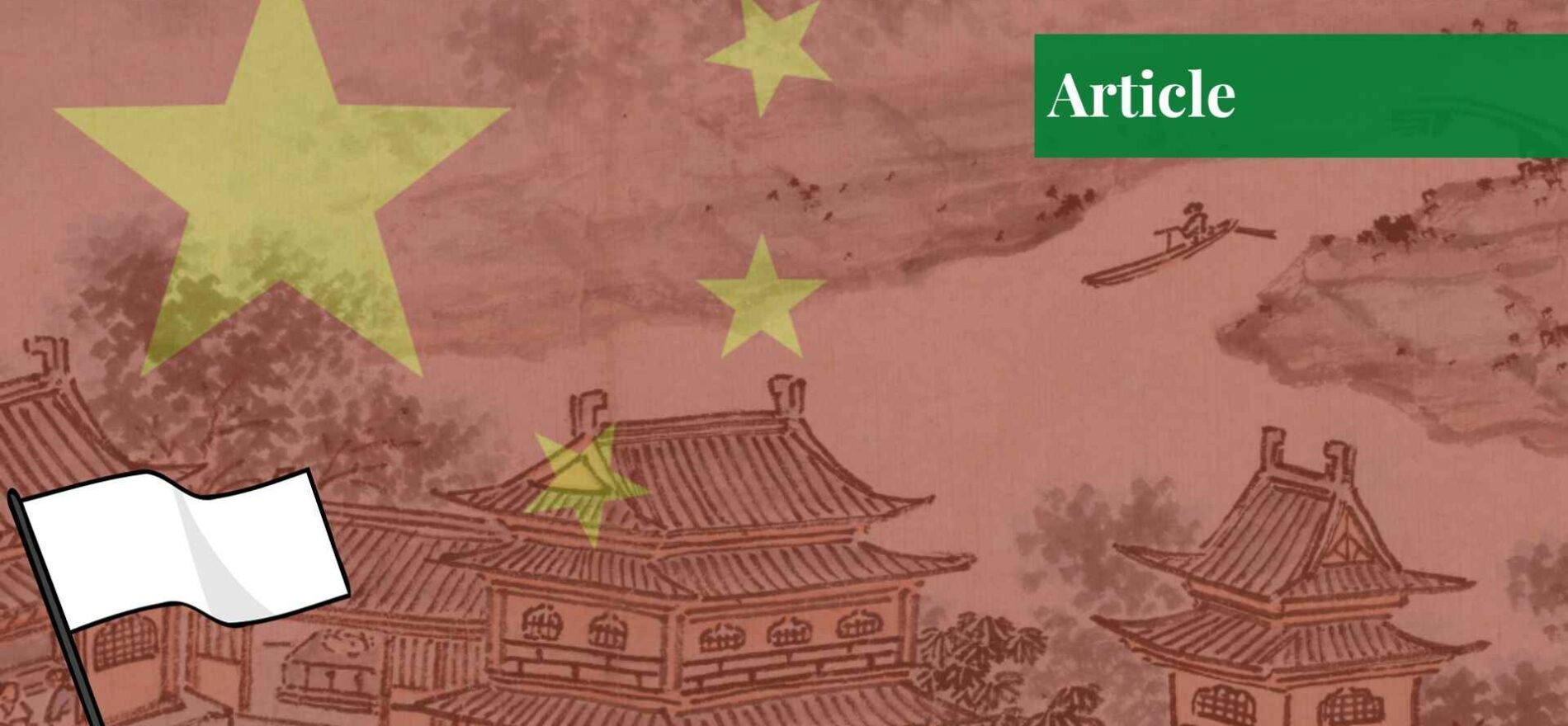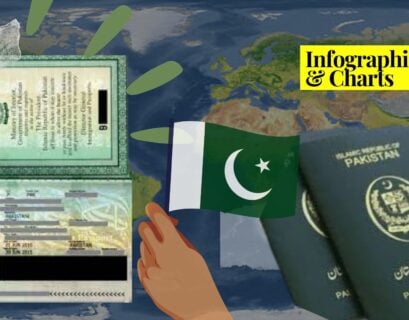Fiza Bibi Ameen is a gold medal qualifier in BS Physics from Riphah International University, Islamabad. She also contributed a prize-winning submission to the HEC inter-university essay writing competition held in 2022. She enjoys researching and writing about science, technology, and informative topics in various niches. She is a freelance writer and may be contacted at [email protected].
The China-Pakistan Economic Corridor (CPEC), China’s largest Belt and Road Initiative (BRI), earned well-deserved national and international praise after its inception in 2015. While peeking beneath the surface and looking toward the future, one can see that this is the largest infrastructure project undertaken in Pakistan. The bilateral initiative is aimed at helping both nations thrive through the connectivity of trade centers in Pakistan, China, and the Gulf States.

History celebrates many milestones achieved under the shade of CPEC such as improvements in infrastructure, power structures, and more. As of now, several fossil fuel and renewable source-based power plants operate in Pakistan, extending the umbrella for under-construction and under-consideration projects. The infrastructure projects in CPEC’s spectrum such as the Karakoram Highway in the scarcely connected northern areas are welcomed warmly at all levels of the community and state.
An Unwelcomed Turn in the Road?
The China-Pakistan Economic Corridor projects were recently reviewed for progress by the Caretaker Federal Minister of Planning Development and Special Initiatives, Muhammad Sami Saeed. Despite his directions to expedite the processes further, today’s voices about CPEC seem nowhere at par with the initial, long-lost confidence when CPEC was considered an optimistic and opportunistic turning point for Pakistan and the region.
The question, however, remains: has CPEC’s translation facilitated its initial game changer image? Has it helped Pakistan escape from its economic abyss, as it once promised? Has it bridged the gap between Pakistan’s dues and the self-sufficiency it can owe to CPEC from this time forward? This also begs the question of whether China is still interested in CPEC or not.
To answer these questions, a look at how global stakeholders view CPEC (and how some of these views became realities) is necessary.
In 2021, the United States Institute of Peace claimed that Pakistan’s lagging approach to much-needed structural economic reforms impedes CPEC. The report also considered Pakistan guilty of negligence as it allowed an indeliberate facility to China, a country aiming to win with a geostrategic approach, in using what they call “debt-trap diplomacy”. Amid the screeches of Pakistan’s economic system, the halted projects can be attributed more to the system than to uncontrollable, external factors.
Then, there are doubts regarding CPEC figures’ transparency. For example, when Ahsan Iqbal, a concerned minister back on CPEC’s 10th anniversary, claimed that it had created 230,000 jobs in Pakistan in addition to other $25 billion completed projects and one-third of the power supply to Pakistan, experts questioned the accuracy of employment data. The head of Pakistan’s Board of Investment (2018-19) emphasized the need for a third-party assessment to verify the minister’s claims. He further argued that permanent and temporary jobs hadn’t been specified either. One may ask: How would an obscure road lead one promptly in the right direction?
He was not alone in citing the doubt-triggering information as an impediment. The plans, without the involvement of local leaders, were documented, for instance, by this long-term project (2017-2030). It was only when the project started, that the local citizens found out about it. Moreover, the reports go on to say that instead of raising awareness among the locals, any anti-CPEC protests are found to be dealt with strictly. The state’s security at the project points stands as an example. A South Asian expert, Michael Kugelman, analyzed both the economics and security in Pakistan as contributing factors to the deceleration of CPEC projects as well.
There’s no denying the economic downturn that envelops Pakistan differently each year. As for security, incidents have been reported, particularly attacks on the CPEC teams even in times when Pakistan’s overall security circumstances are trudging towards improvement.
One major focus of this bilateral project is Balochistan, the most impoverished province of Pakistan. Quite naturally, the citizens of Balochistan have been demanding a greater share of the province-specific projects. The unrest among them over the approach to CPEC has been reported by many press houses. South Asian Voices published that, many times the signed agreements in Balochistan did not involve the provincial government’s take on them. The resistance groups in regard to CPEC, thus, could be found in higher frequency within Balochistan.
United Nations Conference on Trade and Development (UNCTD), while noting that CPEC has failed to live up to its initial image, also accused China’s loans of having worsened Pakistan’s economic crisis. A Baloch citizen’s fear and unrest due to China’s interference in their areas and jobs led to an increase in separatist activities and recruitment. Thus, the researchers and analysts continue beseeching attention to the underlying issues behind the curtains; But, so far, reality hasn’t shown repetition helping the right actions for one of Asia’s biggest projects in history.
Some of the delay in progress can be put into the pandemic’s basket; China, being the initial epicenter, grappled with multifaceted issues. Pakistan, a country with already unsatisfactory health facilities in its far-flung areas, had its fair share of troubles. Another unpleasant plot twist in the bilateral relationship occurred when Pakistan invited Saudi Arabia as a third partner in this project, and a federal minister from the PTI government in 2018 announced it. Later, another federal minister debunked this news. Allowing Saudi Arabia, a strong US strategic partner, to be in China’s deepest interest areas—Gwadar and Balochistan, as the analysts view it—naturally triggered concerns from China’s side, at least momentarily.
Along with dragging Pakistan many hundred miles away from where it once envisioned itself to be in the year 2023, the political crises sabotaged Pakistan’s promptness to the expedition of projects and the world’s eagerness to invest here.
Amid the Complications, Will China Entertain an Alternative?
There is no denying the latest slowdown and hazy interest in CPEC. This tempts one to question whether China will abandon CPEC altogether. Recently, China, the good old friend, has once again revised its vow to support and cooperate with Pakistan. However, China demanded a guarantee for the safety of Chinese organizations and their staff working here in Pakistan on CPEC, as if to confirm once again how desperate the security situation becomes occasionally. It is quite plain, provided the needed security and welcoming environment, the coming years might welcome another era of development and connectivity for the duo.
What the world forgets while questioning whether China will continue dispensing resources for CPEC, is the offerings it has for China. Despite being a reasonably challenging long-term project, it has unprecedented promises for China. Pakistan, though poor in management, has always had a natural resource potential and a boastful geographic location. Giving China a direct route to the energy-magnet Gulf States will boost not only its trade but also its geostrategic and geopolitical standing. Foreign experts see China’s access to Middle Eastern countries via CPEC as a means of solidifying its position as a military power, something it has yet to achieve in that region. Will China pass over such an unprecedented opportunity after waiting this long?
Then, the world glimpses strains in the US-China relationship. China knows it too well that the US, a global power in economics, military, and political impact on the world and a close affiliate of India (another of China’s ever-exacerbating international relations) desires the expansion of China’s power in the glittering South
The Asian region is the last thing. Thus, the more China delays and seeks alternative plans for this well-thought project, the more power it gives to its Cold War rivals. Therefore, it should go without saying that China will not permit that fear to materialize. It may cause the attention to shift to a more urgent plan, but it will always find a way back.
If China is Not All Set to Leave CPEC, What Is It Waiting For?
Security
Mercifully, gone are the years when terrorism plagued almost all Pakistanis with firsthand emotional, financial, and even mortal damage. The acts of terrorism and other extreme events aren’t nonexistent as of today, but improving tourism does show the increased level of safety that Pakistan has achieved. However, CPEC organizations are more concerned with their security, which is arguably in jeopardy. China is waiting for further security improvements to avoid risks.
The panacea to this from Pakistan’s side is awareness. In a country with a declining literacy rate, how can a layman from its most deprived province be expected to comprehend anything in such a complex and well-planned project?
Nothing elicits fear more than uncertainty, and fear appears to be a defense mechanism in security issues. It is high time to inform the masses with verified facts and data. Furthermore, the local audience’s perspective regarding projects and development should be considered. In a nutshell, instead of winning over the populace by force (which is failing, by and large), an effective strategy for winning them through awareness campaigns should be developed.
A Needed Shift in Economics
In a country where millions of people go abroad every year to earn a secure, promising livelihood and where inflation and currency crises continue reaching historic peaks, there’s no denying the waning confidence of foreign investors.
Fluctuations in the economy aren’t completely avoidable; however, hasn’t the world celebrated the nations that have surmounted these challenges? Pakistan’s deepest issue is not only notwithstanding debts but the reforms that need to be implemented. The lack of transparency, the difference in rules for various financial groups, indifference to the unearthed poor populace’s issues, and the lack of a practical strategy to tackle the discovered ones have shoved Pakistan into an abyss from which it has not found a way to return.
In the current years, when even stout patriots are losing faith in glimmering shades of improvement, China is not yet ready to shift the debt balance any further.
The solution lies in reforms and transparency. Assisting Pakistan in winning China’s confidence will prompt the process, and will eventually lead to China, Pakistan, and the region cherishing their much-awaited geo-strategic position.
Political Stability
The political awareness and steadfastness of the nation over the demands for transparency have reached unprecedented levels. However, Pakistan’s political situation has further deteriorated rather than improved. This is not a new crisis. Pakistan’s history is etched with political instability, with no elected prime minister ever getting to complete their tenure. In a country with embarrassing rankings on corruption, freedom of speech, justice, and rule of law indexes, this new level of unrest is painting Pakistan’s image in frightful colors. China is waiting for the flood of political energy to pass before investing. However, Pakistan’s reality is not painting a welcoming portrait yet. The need of the hour is a change in political patterns with a pragmatic approach such that the rule of law situation would improve rather than worsen.
Conclusion
If a project as promising as CPEC, hope for the far-flung population suffering from poor infrastructure and connectivity, slows down, a well-structured future slips away. Although several projects have been completed as part of China’s BRI, the years of development have also discovered potential complications associated with the project’s interest areas. Researchers and analysts continue to warn Pakistan about the most likely complexities. However, history has shown that Pakistan has not dealt with them effectively.
Because China’s economic power will grow through trade connections, it will establish a geo-strategic influence in the region, a Chinese aspiration that the competitive West, and aggressive neighboured India do not encourage. Given that, it does not seem that China will leave the project entirely and seek an alternative. However, it does look like the deteriorating security, economic, and political situation in Pakistan will impede this project for a good while and in a significant magnitude. Thus, for the most part, the ball of CPEC’s future is in Pakistan’s court; its commitment to needed reforms and pattern changes sharpens or blurs the line between development and negligence.
If you want to submit your articles, research papers, and book reviews, please check the Submissions page.
The views and opinions expressed in this article/paper are the author’s own and do not necessarily reflect the editorial position of Paradigm Shift.



















